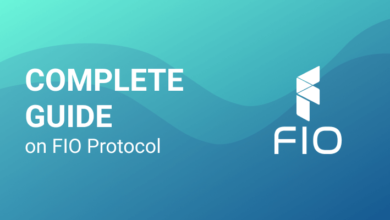Unlocking Growth Strategies for Generating Pharmaceutical Sales Leads

In the fiercely competitive pharmaceutical landscape, the generation of high-quality sales leads is integral for sustained growth and market expansion.
The complexity of the pharmaceutical sector demands innovative and strategic approaches to effectively engage healthcare professionals, build relationships, and ultimately convert leads into customers.
This article aims to delve into a detailed exploration of strategies specifically tailored for pharmaceutical sales lead generation, dissecting methodologies and tactics essential for unlocking growth in this dynamic industry.
Understanding the Dynamics of Pharmaceutical Sales Lead Generation
Pharmaceutical sales lead generation involves the identification, nurturing, and conversion of potential prospects within healthcare organizations, clinics, hospitals, and research institutions.
The process necessitates a profound understanding of healthcare trends, regulatory compliance, and the nuanced needs of healthcare professionals and patients alike.
- Complex Decision-Making Processes: Pharmaceutical sales involve intricate decision-making cycles that encompass various stakeholders, including physicians, pharmacists, healthcare administrators, and regulatory bodies. Recognizing these complexities is essential to tailor strategies for each stage of the decision-making process.
- Regulatory Compliance and Ethical Considerations: The pharmaceutical sector operates within stringent regulatory frameworks like the FDA (Food and Drug Administration) and requires adherence to ethical standards. Understanding these regulations is critical to ensure compliance and ethical communication while engaging with potential leads.
- Targeting Diverse Healthcare Professionals: Pharmaceutical lead generation involves reaching diverse healthcare professionals across specialties, requiring an in-depth understanding of their distinct needs, preferences, and challenges. Crafting strategies that resonate with different healthcare personas is crucial for effective lead generation.
Strategies for Effective Pharmaceutical Sales Lead Generation
Strategies for effective pharmaceutical sales lead generation encompass tailored content creation, precision SEO techniques with industry-specific keywords, and thought leadership initiatives.
Leveraging AI-driven personalization and strategic engagement with healthcare institutions further fortifies these approaches, ensuring targeted and impactful engagement within the pharmaceutical industry.
-
Tailored Content Marketing for Healthcare Professionals
-
-
- Creating specialized content, such as clinical trial data, drug research updates, and treatment guidelines, specifically designed to resonate with healthcare professionals.
- Leveraging platforms like medical journals, webinars, and online forums for targeted outreach and engagement with physicians, pharmacists, and decision-makers.
-
-
Precision SEO and Industry-Specific Keywords
-
-
- Employing SEO strategies meticulously aligned with pharmaceutical terms and healthcare-specific keywords to ensure visibility within the industry.
- Optimizing website content, blogs, and landing pages with precise keywords to enhance search engine rankings and facilitate easier discovery by industry professionals.
-
-
Thought Leadership through Expert Content
-
-
- Establishing thought leadership by disseminating research papers, case studies, and whitepapers on cutting-edge pharmaceutical advancements to attract attention and build credibility.
- Collaborating with key opinion leaders (KOLs), researchers, or renowned experts to develop authoritative content that resonates with the target audience.
-
-
AI-Driven Personalization for Targeted Engagement
-
-
- Harnessing AI-driven analytics to analyze data patterns, behaviors, and preferences of healthcare professionals and customize content and communication accordingly.
- Personalizing interactions, content recommendations, and communication based on data insights to enhance relevance and engagement with potential leads.
-
-
Strategic Engagement with Healthcare Institutions
-
- Forging partnerships with hospitals, clinics, or research institutions to access a network of healthcare professionals, thereby creating opportunities for lead generation.
- Participating in healthcare events, conferences, or industry symposiums to engage directly and establish relationships beneficial for lead acquisition.

Assessing Achievement and Adaptive Strategies
Evaluating the success of pharmaceutical sales lead generation strategies entails tracking metrics such as conversion rates, engagement levels, customer acquisition cost (CAC), and return on investment (ROI). Utilizing analytics tools aids in data-driven decision-making, enabling continuous optimization and refinement of strategies to align with evolving market dynamics and audience preferences.
-
Comprehensive Tracking of Key Performance Indicators (KPIs):
-
-
- Vigilantly monitoring crucial KPIs, such as conversion rates, engagement metrics, and lead quality, provides invaluable insights into the efficacy of lead generation approaches.
- Analyzing intricate data, including website traffic patterns, click-through rates, and content interaction duration, paints a comprehensive picture of audience behavior, empowering the refinement of campaign strategies.
-
-
In-Depth Analysis of Customer Acquisition Cost (CAC):
-
-
- Thoroughly examining the cost per acquired customer helps in evaluating the efficiency of marketing endeavors and optimizing budget allocation for enhanced lead generation activities.
- Calculating CAC aids in delineating the return on investment (ROI), enabling strategic adjustments to procure high-quality leads in a cost-effective manner.
-
-
A/B Testing and Iterative Experimentation:
-
-
- Employing A/B testing on various elements like email campaigns, content formats, or landing page designs facilitates data-driven decision-making.
- Iteratively experimenting with diverse strategies and analyzing outcomes allows for the identification of the most effective lead generation methods.
-
-
Data-Driven Optimization for Continuous Improvement:
-
-
- Leveraging analytics tools and interpreting insights allows for informed decision-making, enabling the optimization of lead generation strategies.
- Adapting strategies based on real-time data analysis ensures agility and responsiveness to changes in audience preferences or market trends.
-
-
Proactive Feedback Integration and Iterative Refinement:
-
- Soliciting feedback from leads and stakeholders aids in understanding their evolving needs and preferences.
- Iteratively refining strategies based on feedback ensures that lead generation tactics remain aligned with the evolving demands and expectations of the target audience.
Conclusion
The effectiveness of pharmaceutical sales lead generation lies in strategic content alignment, data-driven approaches, and targeted engagement with healthcare professionals. By implementing these strategies tailored specifically for the pharmaceutical industry, businesses can establish credibility, nurture meaningful connections, and cultivate a robust pipeline of high-quality leads, ultimately driving growth and success within this dynamic and vital sector.



